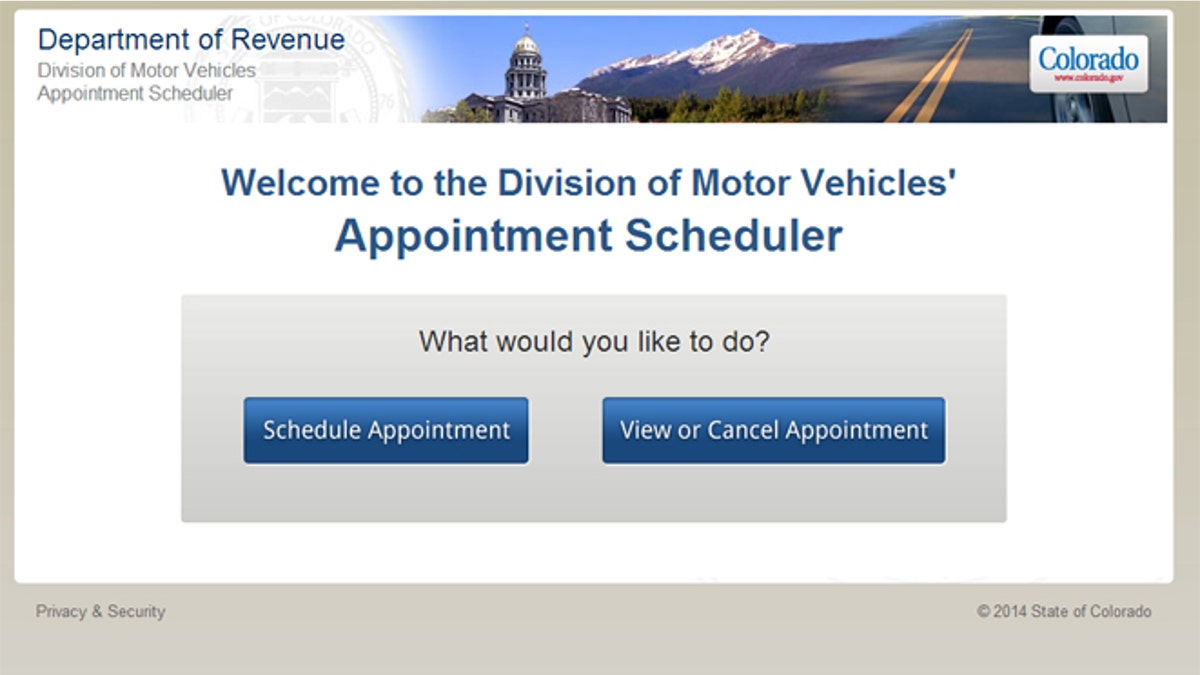
The website for Colorado's Division of Motor Vehicles 'Schedule an Appointment at a Driver’s License Office' page averaged 70,000 hits per hour on Tuesday, including a high of 107,500 hits hourly, compared to its hourly average of 8,126 hits per hour, a spokeswoman told FoxNews.com. (Colorado.gov)
The website for Colorado’s Division of Motor Vehicles was briefly shut down late Wednesday, the same day non-citizens were allowed to begin making appointments to obtain driver’s licenses.
Daria Serna, a spokeswoman for the agency, confirmed the brief shutdown on Thursday, saying the website was back online as of 5 a.m. Thursday local time. On Tuesday, the “Schedule an Appointment at a Driver’s License Office” page averaged 70,000 hits per hour, including a high of 107,500 hits hourly, compared to its hourly average of 8,126 hits per hour.
"There is clearly a great deal of interest by the community to obtain these services," Barbara Brohl, the executive director of the Colorado Department of Revenue, said in a statement to FoxNews.com.
In all, a total of 823 appointments were scheduled, Serna told FoxNews.com, or 100 appointments an hour specifically related to SB 12-251, the Colorado Road and Community Safety Act, which authorizes the issuance of state driver’s licenses to individuals who cannot demonstrate lawful presence in the United States or can only show temporary lawful presence beginning Aug. 1, 2014. Licenses to verified applicants begin being issued at that time.
The state agency began conducting workshops this month to assist customers to navigate the process. The program will be rolled by appointment only and just at five offices statewide, including Denver, Aurora, Fort Collins, Colorado Springs and Grand Junction.
Gabriela Flora, a regional organizer for the American Friends Service Committee, called on the state to provide more locations where the licenses can be acquired.
“Having a system where people have to wait months or years to get a license doesn’t stand up to what the law is meant to do,” Flora told KMGH.
Homero Ocon, who has been trying to make an appointment using the website, told the station he's been unable to do so as of Wednesday.
"I think the way it is, with five places, it could be years before I get my license," Ocon told KMGH.
Licenses issued under this program, state officials note, will have a banner stating that they're not for federal identification, voting or public benefit purposes.

